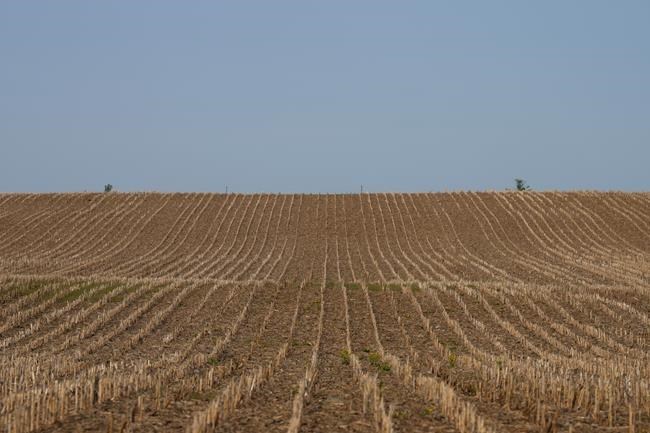TORONTO — Ontario has backed off a housing proposal that farmers say would have had a "catastrophic" impact on farmland and livestock operations.
Municipal Affairs and Housing Minister Steve Clark proposed a series of regulations along with a bill that would allow for more housing to be built beyond urban boundaries and in rural areas, including allowing up to three new lots on parcels of farmland.
But more than a dozen farming organizations, including the National Farmers Union — Ontario, the Ontario Federation of Agriculture, the Beef Farmers of Ontario and the Dairy Farmers of Ontario, issued a joint letter urging the government to abandon the proposal.
Those changes would hamper growth of livestock farming, fragment the agricultural land base, and risk inflating farmland prices, shutting out prospective new farmers, they said.
Premier Doug Ford met late last week with farmers, and the government has decided not to proceed with the lot severance proposal, Clark wrote in a letter to the OFA.
The government originally suggested the severances as a way to support farm families, Clark noted.
"We understand that farming is often a multi-generational family enterprise, and our government has been asked by many farmers to offer practical support to them and their families by making it easier for the next generation to live and work in the same place where they grew up," he wrote.
"At the same time, we have clearly heard the concerns that have been raised about the need to preserve Ontario’s farmland – and we share that goal...We want to continue working with the agricultural sector to look at alternatives that would assist farm families in succession planning, but do not involve additional severances."
Clark wrote that he is now extending the public comment period for the other regulations, to give him more time to consider alternative ways to support multigenerational farm families.
The OFA said it was pleased the government heard farmers' concerns, though they do see issues with other aspects of the bill that could lead to more loss of farmland, at a time when the province is losing an average of 319 acres a day, according to census data.
"We have some other concerns surrounding the use of (ministerial zoning orders) and then some other aspects of the changes in Bill 97, but they're things we can work with," said OFA board member Ethan Wallace.Â
"I think the one that could dramatically have a catastrophic impact on especially livestock agriculture was the three lot proposal and seeing that there is movement on that issue is a very positive step."
NDP agriculture critic John Vanthof, himself a dairy farmer by trade, raised the issue this week in the legislature and said farmers are not opposed to building more than one residence on an existing farmstead, but once the land starts СŔ¶ĘÓƵ severed into new lots, it creates a host of problems, particularly for the livestock industry.
Livestock farms are subject to rules that say they must be a certain distance away from their neighbours, and the more residential lots there are around that operation, the less ability they have to expand their operations. Â
"I don't think they really realized, or someone dropped the ball and didn't tell them (about) the severance thing because we've been fighting to keep severances away from agricultural property for years for exactly this purpose," Vanthof said in an interview.
"So when all the agriculture groups, all the commodity groups like beef, and pork, and dairy, and sheep, and chicken, and the general farm organizations, they all got together with the same message - that hardly ever happens - and they all said, 'Look, this is a bad idea, please reconsider this idea.'"
This report by The Canadian Press was first published May 30, 2023.
Allison Jones, The Canadian Press




